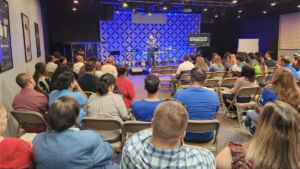If you’ve ever worked a jigsaw puzzle, you know the frustration of not being able to find that one missing piece. Most of us could get OCD about one missing piece. We look frantically for that one small piece; in the box and box top, under the box, all around the table, under the table. We may even look places where we know there is no possible way it could be.
You do realize that your church is one piece of a much larger puzzle? Actually, many puzzles. Every church is one connecting piece in differing societal puzzles; your local community, your city, your county, state, nation, and the world. You likely never thought of your church this way. Most people, even church leaders fail to recognize this truth. Therefore, your church could be a missing piece to one or all of these puzzles.
How are each of these six societal areas affected by your church? What would be different if your church were the current-day version depicted in the book of Acts?
Some churches are making a difference in their community – and abroad. Let’s start at home, your community. What does your church do for the community? How does your church truly attempt to get outside the confines of the building and work to meet the needs of the community with the intent of sharing the gospel. Perhaps eighty percent of our churches in North America are doing nothing to truly reach out to their community with the gospel.
Some attempt to satisfy their own guilt believing the church is doing something – like serving Wednesday night meals with the community invited. Yet, the only people coming are church members. We’re filling our tummies and claiming ourselves good and faithful because we offer the meal. “It’s not our fault if they don’t come.”
Another ten percent or more are doing the minimal; hosting a food bank or clothing closet. These are good ministries and there is a need. But how many food pantry’s and clothing closets are in your county? Do you know? One church set out to find what ministries were needed in their county. They had discussed all the norms like the two above. After inviting city and county officials, non-profits, and other agencies to their church for a discussion and free meal, the church found out there were already 53 agencies or offices assisting the physical needs of the residents.
The church’s conclusion was, “We do not need to start any needs-based ministries. We need to find where God is working and join Him in some of these established ministries.” This church realized their piece of the puzzle at this time was not to reinvent some ministry, but to utilize their giftings and resources with other ministries.
George Yates is the Church Health Strategist for the Alabama Baptist State Board of Missions, assisting churches and individuals in pursuing God’s purpose for life. Learn more at ALSBOM.org/revitalization.






